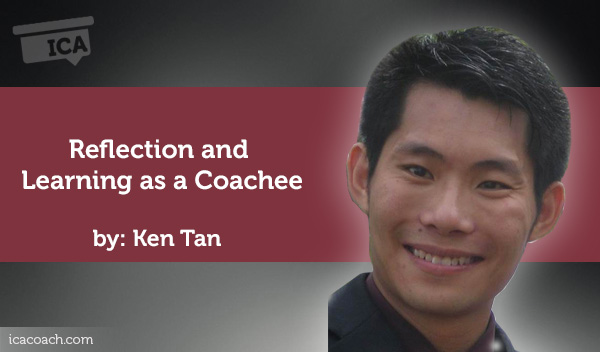
Coaching Case Study By Ken Tan
(Career Coach, SINGAPORE)
From the perspective of a Coachee, I get to witness how the core competencies set out by ICF is used. In the beginning, there is a “Discovery Call” with Kenneth to assess the suitability of both parties. I think this helps to build the initial foundation of trust and concern for the Coachee (Competency 3).
There is the verbal coaching agreement outlined to manage the expectation, the objective of coaching and confidentiality of information shared. (Competency 2)
As the session starts, I realise the application of the coaching skills – most importantly, the active listening techniques and powerful questions asked (Competency 5 and 6 respectively). Kenneth paraphrases my thoughts. He picks up the keywords after getting the sense of my tone and repetitive words used. He listens intently and not to what I am saying. Then, he zooms into specific areas and asked questions, both measurable and probing. For instance, he asks a question that angle towards a scale of one to ten. To me, this is the quantitative part that reaffirms my evaluation.
Kenneth is also non-judgmental. He is unbiased and did not offer any personal perspective. I figure this is the basic foundation of a Coach.
The engagement level is high that leads me to explore alternative ideas and solutions (Competency 9). I have a perception but Kenneth redirect me to think broadly with the deep questions. I have also learnt about the collection of key insights in a logical manner that will help to create a specific SMART plan with a proper direction. (Competency 10)
The coaching model used is similarly to “OSKAR” – help clients determine actions to take and the rationale behind the process. The approach is mainly solution-based rather than problem-centric. Kenneth has shown how he extracts my strengths and successes to get my self-awareness radar up before constructing open-ended questions. He gets me to explore various ways of taking actions.
In summary, I have gained a window of opportunity, through peer coaching, allows me to pick up skills needed and a proper framework for a beneficial coaching session. Even a call can be useful, apart from the face-to-face meeting. This means I am able to embark on a journey of coaching across borders, across geographies. Moving forward, I will practice the ICF core competencies and sharpen my coaching abilities to bring forth a robust and effective coaching approach to my clients.